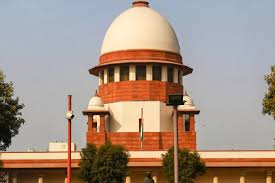‘When human lives at stake, matter needs utmost sincerity’: SC acquits death row convict

New Delhi, July 17: In a significant verdict that once again underscores the sanctity of human life in the justice system, the Supreme Court of India on Wednesday acquitted a man who had been languishing on death row. The bench, while delivering its judgment, made a poignant remark: “When human lives are at stake, the matter needs utmost sincerity.”
The ruling comes as a strong reminder that courts must exercise the highest degree of caution and scrutiny, particularly in cases involving the death penalty. The judgment, passed by a three-judge bench led by Justice B.R. Gavai, has sparked national conversations about the fallibility of the criminal justice system and the irreversible nature of capital punishment.
Background of the Case
The convict, whose identity has been withheld in accordance with privacy norms, was sentenced to death by a trial court several years ago on charges of rape and murder. The High Court later upheld the conviction, reaffirming the death penalty. However, when the matter reached the Supreme Court, the apex court found glaring loopholes in the investigation, inconsistencies in witness testimonies, and a lack of conclusive forensic evidence.
Upon re-evaluating the facts and legal arguments, the court concluded that the prosecution had failed to establish guilt beyond a reasonable doubt — the cornerstone of any criminal trial, particularly when the punishment sought is death.
Key Observations by the Supreme Court
In its detailed judgment, the Supreme Court emphasized the following:
- High Burden of Proof in Capital Cases:
“When a court considers a case involving the death penalty, it must go beyond routine scrutiny and examine every aspect with heightened sensitivity,” the bench noted. - Doubt Must Benefit the Accused:
Even a marginal doubt must tilt the scales in favour of the accused, the court remarked. It reiterated the legal principle that in a criminal trial, the benefit of doubt always goes to the accused. - Responsibility of the State:
The judges strongly criticized the investigation, pointing out the lack of rigour and professionalism in collecting and preserving evidence. They stated that the state must ensure that its investigating agencies follow the highest standards, particularly in






